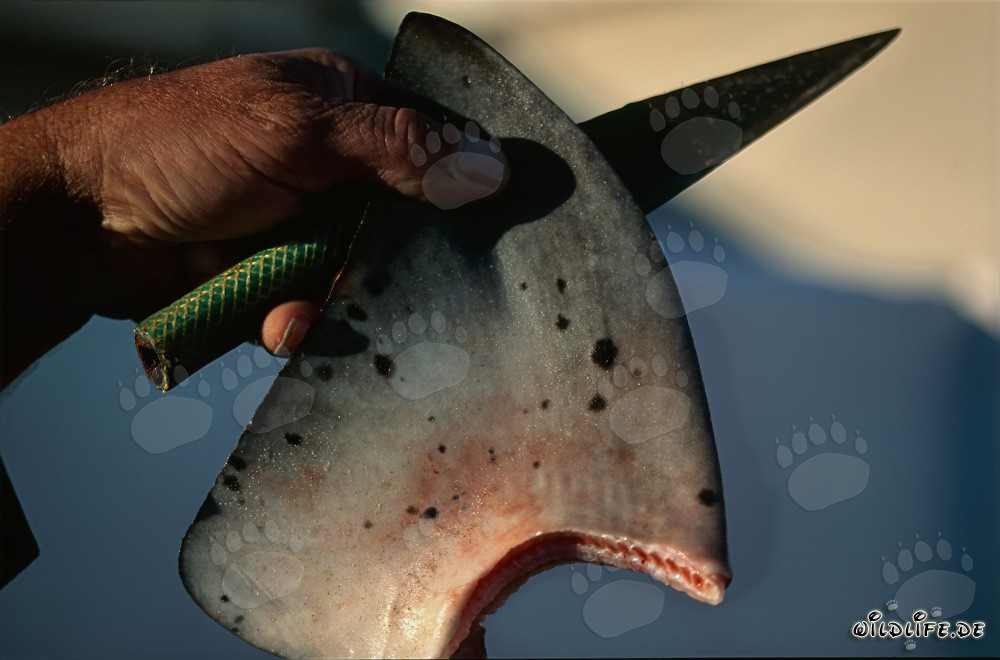A University of Miami study (February 23, 2012) has discovered high concentrations of BMAA in shark fins. BMAA is a neurotoxin linked to neurodegenerative diseases in humans including Alzheimer's and Lou Gehrig Disease. (00015650)
Description: Shark Finning/Hai Finning Shark Finning Cutting the fins off from the body of the sharks is called finning. When the sharks are caught with long-lines or drag nets, their fins are cut off and the animals are thrown back into the sea still alive where they suffer a painful death. Even smaller fishing cutters can cause a great deal of damage, as they only bunker the fins and throw the shark bodies over board. Shark fins are a desirable delicacy in Asia. The fins are used for shark fin soup which is served on special occasions. Shark fin soup is not a necessary food requisite, but more of a status symbol. Previously this soup was reserved for the small rich upper class. Following the economical upswing over the last few years there is now a large rich middle class for whom the status symbol of the shark fin soup is a must. Business with the shark fins is extremely lucrative and the profit margin higher than with drug dealing. The largest turnover market is in Hong Kong, where a bowl of shark fin soup costs up to 400 dollars. A longliner in Costa Rica, who can illegally accommodate his freight of shark fins – which is not a problem – makes a turnover of approx. one million dollars on a single trip. The demand for shark fins is extremely high and the supply becomes smaller and smaller. Where there is business to be done, it will be. And the EU is one of the most important suppliers of shark fins to Asia. Shark finning massively threatens the ecological balance. The population of many large types of sharks in the North Atlantic has decreased by 97 per cent since 1970, and that of the bull sharks in the North West Atlantic even by 99 per cent (according to a study by Dalhousie University in Halifax, Canada.)
Location: Western Cape, , South Africa
Date of Capture: 13.08.2002

